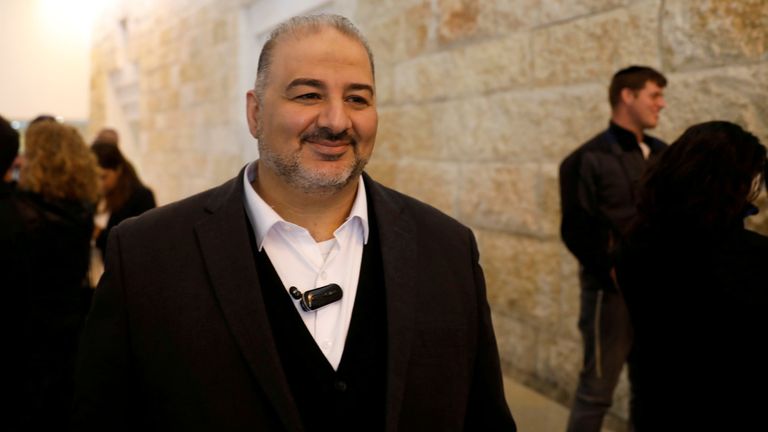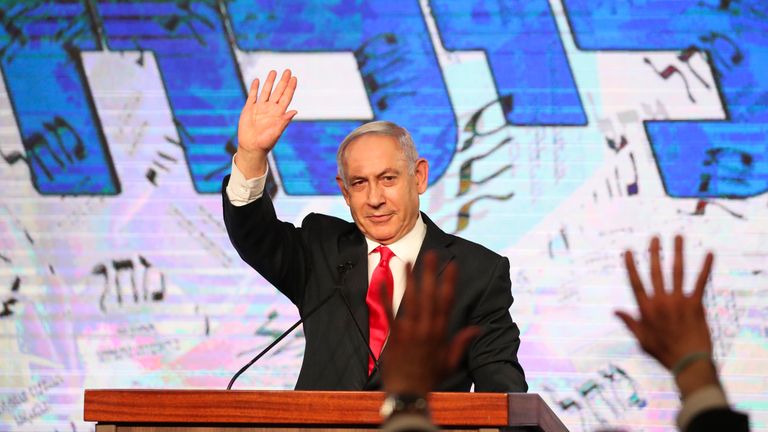Did the Middle East’s only democracy prove last night that, however messy it may be, democracy prevails? Or will it prove, over the coming days, that it is the most dysfunctional of democracies?
Benjamin Netanyahu is still Israel‘s prime minister. He will remain so until the new coalition passes a vote of confidence in the Israeli parliament – the Knesset.
That should be a procedural affair. After all, if a majority of parties and their members said last night that they will join this coalition for change, then it’s a simple ratification process, right?
Wrong. As one coalition insider told me last night in the final hours of negotiations, “it’s an emotional roller coaster and it won’t end at midnight… we’re in for days of hell”.
It could be days, because that confidence vote may not be held until 15 June. It’s up to the speaker of the Knesset to schedule it and he is a loyalist to Mr Netanyahu.
The more time Mr Netanyahu and his allies have, the more likely it is that they can chip away at the coalition and peel off individuals to destroy the majority.
Mr Netanyahu has, unintentionally, achieved something few thought possible – the coalition which emerged overnight is the broadest in the country’s history, and it is his creation. The only thing the parties within it all have in common is a desire to remove him.
Follow the Daily podcast on Apple Podcasts, Google Podcasts, Spotify, Spreaker
It’s made up of parties from across the political spectrum.
At one end, Yamina is religious, far to the right of centre and led by nationalist and now PM in-waiting Naftali Bennett. He’s a proud hardliner who doesn’t believe in the two-state solution and whose position on the Palestinian issue is uncompromising.
At the other end, Meretz is Israel’s progressive Green Party, left wing, secular, anti-occupation, pro-two state solution.
Between them are all the others including Ra’am, an Arab Israeli party who for the first time since 1977 will have representation in a coalition government. On the Palestinian issue, they could hold key leverage.
The unlikely and historic alliance was captured in a single photo late on Wednesday night.
On the left, Yair Lapid, the centrist, bold architect of this coalition, in the middle Naftali Bennett who Lapid promised the premiership to for two years in order to secure his support, and on the right Mansour Abbas, the Arab Israeli who will try to secure concessions for Palestinians within Israel and in the occupied territories.
Three men who no one expected would or could work together, sitting, smiling and signing the coalition document.
In a country where divisions and suspicions of the other run deep, it’s an uplifting almost emotional image of compromise and consensus.
Too good to be true? Well it’s fragility was highlighted overnight by protesters on both sides unhappy at what they see as a betrayal of their values – left, right and centre.
Over the week or so, Mr Netanyahu will try to lure defectors from within the parties to collapse the coalition and force a fifth election in just over two years.
If he fails then he’s out; an era over.
But it’s hard to see how this unwieldy coalition, admirable though it is in its formation, can ever achieve meaningful change one way or the other.
The ideologies within it are just too different.





